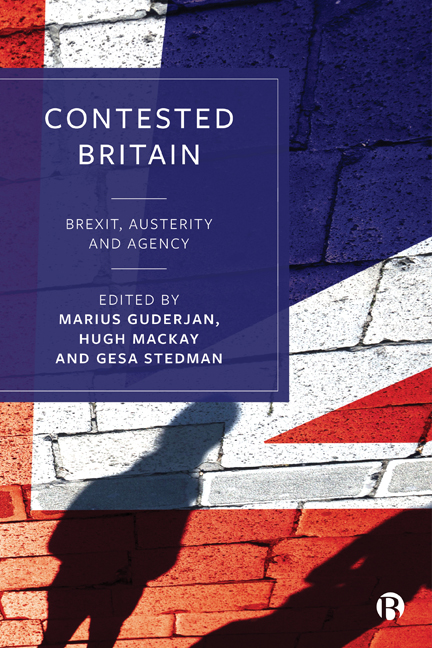4 - Culture Matters: Cuts and Resistance
Published online by Cambridge University Press: 10 March 2021
Summary
Introduction
As ‘culture’ is a slippery term it seems useful to define what is meant by the ‘cultural sector’ on which this chapter focuses. In Cultural Studies, ‘culture’ as a rule ‘indicates a particular way of life, whether of a people, a period or group […].’ (Williams, 1976, p. 80). Yet Raymond Williams, initiator of this use, also defined another meaning of the noun: ‘the works and practices of intellectual and especially artistic activity. This seems often now the most widespread use; culture is music, literature, painting and sculpture, theatre and film’ (Williams, 1976, p. 80).
This chapter examines the cuts which the Conservative Liberal-Democrat Coalition (2010– 15) and the following two Conservative governments have administered to culture in this narrower but ‘most widespread use’. It will assess their consequences for British society and appraise the effectiveness of the resistance put up by various agents and actors. The field of education will be included as far as the teaching of music and the various arts are concerned.
Compared to the havoc austerity politics has wreaked on the income and life chances of the weakest members of society – for example the disabled, single mothers and large families – cutbacks in the cultural sector may seem a luxury concern. Yet the author hopes to show how the cuts to culture have also been disastrous for society as they further disadvantage the poor, with crippling effects on future generations, and endanger Britain's rich cultural mix.
Financial sources for cultural activities in the UK
The financial means for culture in the UK come from a variety of sources: ticket sales, commercial activities of cultural institutions, private sponsors and – the biggest share – from state expenditure, boosted by Lottery money since the mid-1990s and – until now – complemented by grants from various EU funds. State support, including Lottery money, is channelled through several bodies. In England, the Department for Culture, Media and Sport (DCMS) funds 43 non-departmental public bodies directly, among them the Arts Council England (ACE), the British Library and 15 national museums including the British Museum, the Tate, The Science Museum Group and the National Gallery.
- Type
- Chapter
- Information
- Contested BritainBrexit, Austerity and Agency, pp. 59 - 72Publisher: Bristol University PressPrint publication year: 2020

